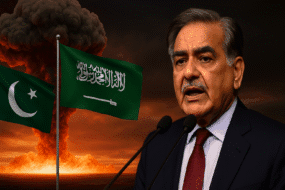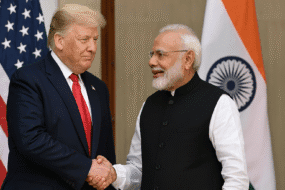The idea of a NATO-style Arab-Islamic military alliance resurfaced on Monday as leaders from across the Arab world and Muslim nations gathered in Doha for an emergency summit. The meeting was called after Israel carried out a strike in Qatar that killed several Hamas members and a Qatari security officer.
Although the summit produced only limited action against Israel, a stronger takeaway was the renewed momentum behind the creation of a joint Arab military force, dubbed by Egypt as an “Arab Nato.”
Egypt’s Proposal
Egypt, home to the Arab world’s largest army, has positioned itself at the centre of the initiative. Reports suggest Cairo is willing to contribute up to 20,000 troops initially and host the alliance’s headquarters, with an Egyptian four-star general as the first commander. Leadership would rotate among Arab League members, with integrated land, air, naval, and special forces, supported by collective training and logistics.
Saudi Arabia is expected to play a key deputy command role, while Gulf states such as the UAE and Bahrain could provide crucial funding and advanced capabilities. Cairo has framed the plan as a “defensive umbrella” rather than an offensive pact, aiming to counter security threats, terrorism, and instability in the region.
Voices from the Summit
The emergency session was attended by Pakistan, the only nuclear-armed Muslim nation, which called for a joint task force to monitor “Israeli designs in the region.” Turkish President Recep Tayyip Erdogan pushed for economic pressure on Israel, while Iraq’s Prime Minister Mohammed al-Sudani argued for a NATO-style collective security system to safeguard regional stability.
Qatar’s Emir Sheikh Tamim bin Hamad Al Thani condemned Israel’s strike as “treacherous and cowardly,” accusing it of undermining US-backed ceasefire talks in Gaza. The joint statement urged reviewing ties with Israel and exploring legal action, though the strongest momentum came from Egypt’s call for deeper military integration.
Symbolism vs Reality
Analysts, however, remain sceptical. Experts note that despite fiery rhetoric, the summit delivered only condemnations and vague pledges rather than binding commitments. Deep regional rivalries, especially between Sunni-majority Arab states and Shia-led Iran, continue to hamper consensus.
While Egypt is pushing for an “Arab Nato,” Iran has floated the idea of a broader “Muslim Nato.” Critics say these rival visions expose the fractures within the region. Egyptian-American commentator Hussein Aboubakr Mansour dismissed the proposals as symbolic, remarking, “The Saudis would rather fund Israel’s Iron Dome before giving protection money to either Egypt or Iran.”
Economist Steve Hanke echoed the sentiment, describing the summit as “all bark, no bite.”
Shifting Regional Dynamics
Even so, the renewed push highlights growing Arab concern over reliance on US security guarantees. With Washington recalibrating its role in the Middle East, particularly under Donald Trump’s recalibrated policies, a self-sustaining Arab defence alliance may be seen as increasingly urgent.
If realised, an “Arab Nato” could significantly reshape Middle Eastern power dynamics, though for now, it remains more a vision than a reality.





